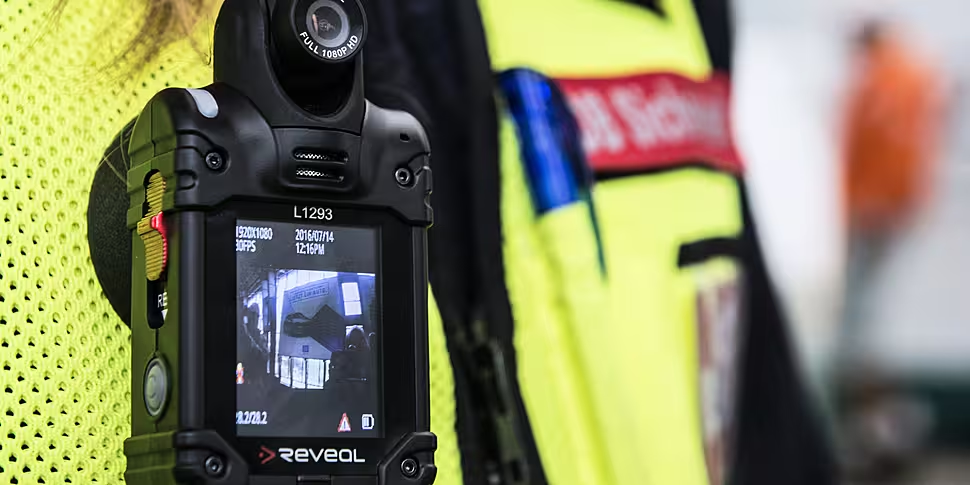A civil liberties group has suggested the use of body cameras by Gardaí has been 'over-sold' to the public.
Body cams could be used by Gardaí in certain situations only, according to new plans.
The Irish Times reports the system will involve officers wearing a highly visible camera on their chest that can record video and audio, and they will have the choice whether to turn recording on or not.
It is likely they will only be used in confrontations, but Gardaí will have to signal when the devices would be turned on and explain their actions afterwards.
The introduction of body cameras was recommended by the Future of Policing Commission back in 2018.
However Liam Herrick, executive director of the Irish Council for Civil Liberties (ICCL), told Newstalk Breakfast the benefits have been debunked.
"We'll need to see the detail of what the Minister's proposed - it's very positive that the Minister's bringing forward primary legislation in this area.
"It affords the opportunity for the Oireachtas and for the wider public to consider this in detail.
"Of course if safeguards are in place that will address some of the concerns.
"But the real issue that we have with body-worn cameras specifically is that the move to introduce them, particularly coming in the United States, was based on the belief they would improve police behaviour, reduce crime and give an accurate record of what happens in policing incidents.
"And the early evidence on which this was based has now been overturned.
"In fact what we're now seeing from the United States is that this technology - which is very expensive and which opens up dangers of surveillance - doesn't have a difference on either police behaviour or public behaviours.
"So the benefits have been over-sold, and I think we could go down the road of an expensive and invasive form of surveillance without actually having benefits".
He added: "The idea that it provides a protection to the public because it gives a filmed record of what happens has also been debunked because officers can direct the camera away, and it can actually tell a one-perspective story of what happened - rather than an objective one".









